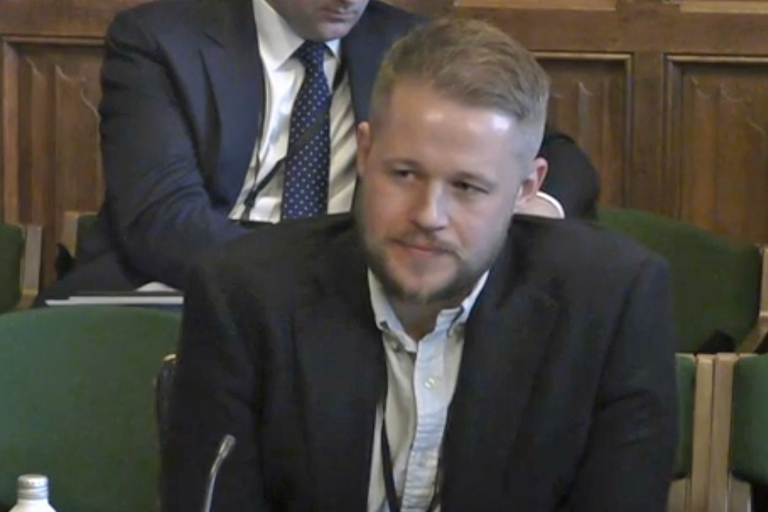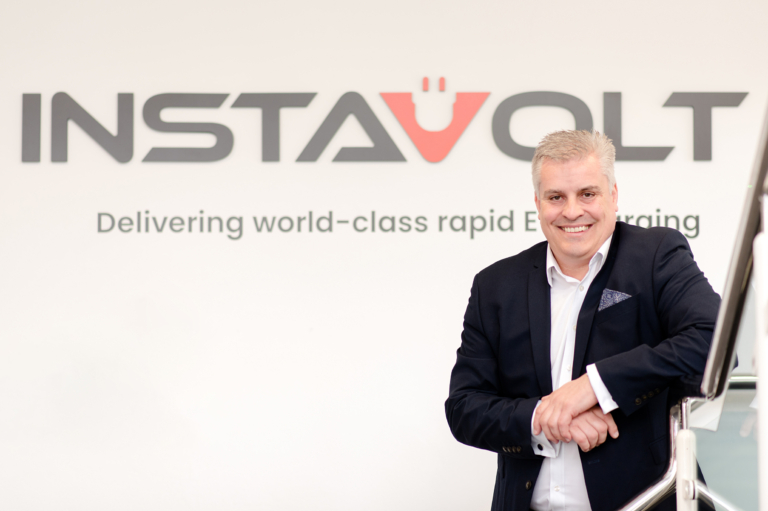Growth and success in 2019

Winners, finalists and sponsors of the Thames Valley Business Magazine Awards attended this roundtable, hosted by The Business Magazine at the Royal Berkshire Conference Centre, Reading. The 2018 awards were sponsored by the Cardinal Clinic, Curve, Gateley plc, GovGrant, Hays, James Cowper Kreston, NatWest and TPC Leadership. Tim Wickham reports the roundtable highlights.
Participants
Robin Barnes: Regional director, corporate and commercial banking, NatWest
David English: Health and safety adviser, Panasonic
Jim Fyfe: Philanthropy director, Berkshire Community Foundation
Jenny Jackson: Business development manager, DEBRA
Lillie Perkins: HR business partner, Softcat
Clive Flood: Head of operations, GovGrant
Sarah Shearman: Regional fundraising manager, Make A Wish
Alina Skuba: Senior relationship manager, NatWest
Danielle Munday: Regional fundraising manager, Make A Wish
Gareth Meyer: Head of Sales Operations, Ultima
Mark Lang: Communications and PR manager, Thrive
John Burbedge: Journalist, The Business Magazine, chaired the discussion
The Business Magazine’s John Burbedge chaired the roundtable and kicked off the discussion by asking how companies and charities are coping in challenging times, particularly as Brexit uncertainty intensifies.
A show of hands around the table revealed that while all agreed a ‘no deal’ Brexit would be bad for the UK, most felt planning their response to whatever outcome we get was difficult as the potential impact was still up for debate. However, everyone said they felt ready to face the challenges ahead and, in most cases, appeared to relish looking for new opportunities.
With a mix of people from the corporate sector and third sector, topics were broad and the discussion wide ranging. They included taking advice, being more innovative, tackling stress at work and protecting your culture. At the end of the roundtable, Burbedge observed that one key thing underpinned everyone’s comments about the future success of their organisations: the importance of their people.
Words of advice
The fallout from the UK’s imminent exit from the EU wove its way throughout the conversation. “Brexit is a six-letter word,” said Burbedge, “but in these challenging times companies should perhaps be considering another six-letter word: advice.”
Robin Barnes at NatWest, which has set aside a fund of £3 billion to support UK businesses through the Brexit transition, pressed the case for companies to talk to their advisers: “Businesses need to think through their options to assess the most effective way they can operate in this uncertain world. The preparedness of many Thames Valley businesses is stepping up as the March date for Brexit approaches, but I’m still not sure enough are deciding what they should be doing right now. I’d encourage them to talk to professional advisers, their peers and industry groups, like the Berkshire Local Enterprise Partnership. They’ll receive regular help, tips and other information.”
Clive Flood at GovGrant thought government incentives, such as tax breaks on research and development costs, might increase after Brexit as the UK fights to remain competitive on the world stage. He said: “Currently, the UK Government is restrained by EU rules on how much it can support British businesses under state aid rules. After (or if) we leave the EU, it should be able to offer increased tax reliefs to ensure that the UK Government is incentivising British companies to be innovative. At GovGrant can not only assist in obtaining tax credits for research and development spending but also provide support and additional services to enable British companies to protect their innovations and intellectual property, to ensure they remain competitive on the world stage. Now is the time that companies should be finding out how they can take advantage of these incentives.”
Are companies worried about post-Brexit trading?
Brexit’s impact on the technology sector could be significant for companies like Reading-based Ultima and Marlow-based IT infrastructure provider Softcat. Ultima’s Gareth Meyer said: “It could be a problem if you are a traditional reseller who is dependent on selling hardware. We are moving more into a software-dominated world enabling customers access to their data and intelligent scalable platforms. Ultima are dominant with our consultancy services, therefore we should face less of an impact on post-Brexit changes in trade rules.”
Lillie Perkins at Softcat added: “We are preparing for any outcome by building our relationships with vendors and communicating regularly with customers and employees to keep them in the picture about our position.”
Barnes added: “We are seeing more companies increasing stock levels where they can, and there is a noticeable shift in their borrowing facilities as they do this. Our business customers are also asking more questions about currency rates.”
Alina Skuba: “Brexit has been messaged for so long but is still uncertain and so some of my customers are now letting it sort itself out, while concentrating on improving various aspects off their business internally – ie aspects of the business that they can control.
For manufacturers, Brexit is undoubtedly going to be a “leap in the dark” noted David English. “The key at Panasonic is preparation, making sure we have our supply chain ready to cope. We are reviewing inventory levels. Internal and external communications are also important.”
Barnes highlighted the cost to businesses of being prepared: “Planning and reorganising to cope with a variety of outcomes creates costs to businesses depending on the perceived severity of those outcomes. As advisers, we are supporting by coming up with creative ideas to help them through this period.”
How are you changing your organisation to be more innovative?
English: “We are seeing footfalls in town centres falling. Panasonic has built up its e-commerce team for online sales of products. We aim to make buying smart, easy and accessible. You have to be flexible enough and brave enough to change.”
The charity Thrive leads the use of therapeutic gardening and horticulture in the UK. Mark Lang said: “Interest in gardening for health is increasing and we are seeing growing demand for our online courses and information service. If you provide the right content, people are hungry for it. Online means we can reach more people.”
The Berkshire Community Foundation works with families and businesses to make sure their donations to local voluntary organisations have the greatest impact. “Across the charity sector there’s a lot of pressure to be innovative. It’s more important than ever for charities to think outside the box in presenting what they do in ways that bring in core operational funding to keep the lights on, as well as focusing on specific fundraising projects,” said Jim Fyfe.
What keeps you awake at night?
Pressure from rapid change is a constant challenge in the technology sector. “The pace of change keeps me awake at night,” said Meyer. “Traditional technology resellers are not the future of our industry. We’re investing in areas of the business to support agility to match the demands of our ever-changing market. We have eight of nine projects on the go that will determine the future success of our business. These include a customer centric CRM, AI integration across our technical service centre, deployment of our cloud centric management suite and further investment in our R&D division.”
Perkins: “As well as making sure we keep up with developing technologies, recruiting and retaining the right people is a big challenge for us. We have to be one step ahead in offering the best benefits to employees so we can grow, but at the same time still maintain our culture.”
Stress at work is increasing. What support should organisations be giving?
Barnes: “There has been a significant change in attitudes by companies towards the whole subject of wellbeing. The accelerating pace of change means that more people are more vulnerable and are finding it harder to cope, which is why NatWest provides wellbeing training. Companies that don’t focus on wellbeing will be in trouble. Charities have a role to play because they help give people who support them a sense of their personal worth.”
English: “As part of Panasonic’s wellbeing programme we listen to people and empower them. Our people managers are offered training to recognise if a colleague is struggling and will know where they can go for help if they want it. We have a team of mental health first aiders. Next year we will focus on financial wellbeing. We have a lot of long servers who we don’t want to lose. It’s about offering support when times are difficult and being approachable – from the top down.”
Sarah Shearman at Reading-based charity Make-A-Wish: “Fundraising isn’t a 9-5 business, so it suits flexible working and we’ve introduced this and job sharing. At Make-A-Wish, we recognise that every employee plays an important role.”
Meyer: “We live in stressful times and have naturally seen a spike in stress levels. We offer a range of support services including a 24x7 wellbeing support line as well as promoting an open-door policy to management. If you want to keep your employees engaged you have to promote a positive working culture.”
Lang: “We know spending time in nature can reduce stress levels and improve feelings of wellbeing, so we encourage our employees to use the gardens around our centre, for example taking a short break or having meetings outside where practical. It’s too easy to spend all day at your desk; we would encourage more organisations to see their outside space as a valuable resource to help manage the effects of stress.”
Do charities need to think more like businesses to survive and thrive?
Jenny Jackson at Crowthorne-based charity DEBRA, which supports people and families affected by the epidermolysis bullosa skin condition, agreed with Shearman that charities have to act more like companies. “Our senior managers recently visited Make-A-Wish’s new head office in Reading. We were impressed with what they are doing and learned a lot as we are also looking for a new location. We’re adapting to the 24-hour culture where people do things online, rather than picking up the phone to us. And contactless payments are replacing collection boxes. We’re also looking at cloud-based systems for remote working. Charities need to adapt as much as anybody else,” said Jackson.
Danielle Munday at Make-A-Wish said: “I totally agree. There’s not much distinction between the third sector and the private sector. Digital transformation is necessary to meet our targets.”
Skuba commented: “It’s interesting to compare what businesses and charities are doing. Those that don’t change will be left behind – and that includes NatWest. Fewer customers use bank branches and more transactions are cashless.”
As business pressures build, are companies still focusing on charitable giving?
Fyfe: “What we do is tied to the business world. Fundraising is like a sales role where you are selling a feel-good factor. We are finding there is more and more uncertainty. Companies are more focused on investing in themselves. A large majority of the charities we support tell us austerity is affecting them.”
He added: “As statutory support services are cut more people are turning to charities for help, which means charities have to rely even more on the goodwill of their supporters and volunteers. But funding pots are getting smaller. This is a problem in the Thames Valley where there is perceived affluence and a high cost of living, which makes it harder for those who are suffering. However, business culture is changing as companies examine their ethics. They are looking at how they support their local communities.”
Barnes: “This change in attitude by businesses links back to well-being. When employees are encouraged to support charities it can increase their wellbeing and it also shows that their employer cares about the wider community.”
Perkins: “We offer employees two charity days a year which they get to support a cause of their choice.
English: “There are different ways businesses like Panasonic can help charities beyond donations. We give staff a day a year to give their time to support good causes. One of Panasonic’s core principles is to be a contributor to society.”
Shearman: “One thing we are doing is looking at different ways of granting wishes. For example, if a child wants to be a Disney princess, they don’t necessarily have to go to Disneyland. Instead, we can arrange a magical experience at a castle in England where they can meet a princess. When we talk to supporters, especially corporates, we look for gifts in kind where their staff can get involved in helping us make wishes come true. We want more wishes to be granted in the local community and with local businesses. Supporting charities goes beyond just giving money as it gives company employees the feel-good factor.”
Lang: “Our experience shows there’s still a desire among companies to give, not just financially but also in terms of time. Corporate volunteering at Thrive has been a great success story and feedback from volunteers shows that the overwhelming majority love working outside in nature and feeling they are making a difference.”
Is your culture changing to ensure you maintain your success?
Perkins: “Our culture has remained the same, but is evolving as we recruit more staff and open new branch offices. But we are committed to supporting well-being and keeping our core values, especially as we expand and open new offices.”
English: “When Panasonic began during the 1920s its founder said don’t lose your values but be prepared to change or you won’t have a business. That’s just as true today. We haven’t changed our culture but we have changed the way we work and do more for our employees.”
Should corporate well-being programmes link more closely with charities?
Lang: “There’s certainly scope for this. The five ways to well-being are to connect, be active, take notice, keep learning and to give. Engaging staff in supporting a local charity can tick all those boxes. And working outdoors offers the added bonus of the beneficial effects of time in nature.”
Jackson: “We don’t offer support on mental health advice but one area we are getting more involved in is helping business achieve CSR accreditation. We help businesses to think about how they treat their staff and this keeps employee well-being at the forefront in their decision making.”
Fyfe: “I think the gap is closing. We work with voluntary organisations delivering mental health first-aid training. Charities themselves can be very stressful working environments if staff have to deal with harrowing experiences. I think charities are getting better at supporting their own workforces.”
People assets
So, are people really a company’s greatest asset? “It used to sound a bit of a cliché. But I think it is truer today. Employees with physical or mental health issues who aren’t able to work can be a big problem, especially for smaller organisations. It makes good business sense to look after all of your people and their well-being. This includes giving employees a voice so they feel empowered,” said English.
Barnes: “I agree. Social change means people are not prepared to accept the status quo and want more of a say in how their company behaves.”
Skuba added: “From my experience working with SMEs, one of the biggest challenges most businesses face is recruiting the right people as well as retaining them. Often, smaller organisations have more relaxed environments where people feel more comfortable to talk about personal matters and mental health issues if any. However as businesses grow, it becomes harder to maintain that family feel, hence talking about sensitive personal matters becomes less common.
Shearman: “To improve career development, Make-A-Wish has a fortnightly development hour for employees. This is for staff to undertake personal development activities, things that support them in their role. It could be watching a TED (technology, entertainment, design) talk video or reading up on subjects like mindfulness.”
What are the key aspects to continue being successful?
Skuba: “Innovation and flexibility.”
English: “Employee well-being – total engagement with well-being, volunteering and supporting charities.”
Munday: “Creating mutually beneficial relationships. Being flexible. Showing you are a pioneer to steward supporters’ funds.”
Barnes: “Seeking to be in front of change – to influence not follow.”
Flood: “Adapting to change. Using innovation to fully optimise new opportunities from change.”
Jackson: “Being adaptive and innovative. Building strong relationships that will last for years, both internally and externally.”
Perkins: “Recruiting and retaining the right people. Not becoming complacent. Making sure we continue to challenge things and take opportunities when they arise.”
Shearman: “Reaching every eligible child to grant their wish.”
Fyfe: “Remaining approachable and knowledgeable of the local voluntary sector. Being articulate and a leader in the way we highlight issues.”
Lang: “Building awareness and support of what we do by showing the positive impact through good storytelling backed by evidence.”
Meyer: “Empowering our people to drive our organic growth. Engaged employees create innovative ideas that enable us to stay ahead of the digital curve.”













